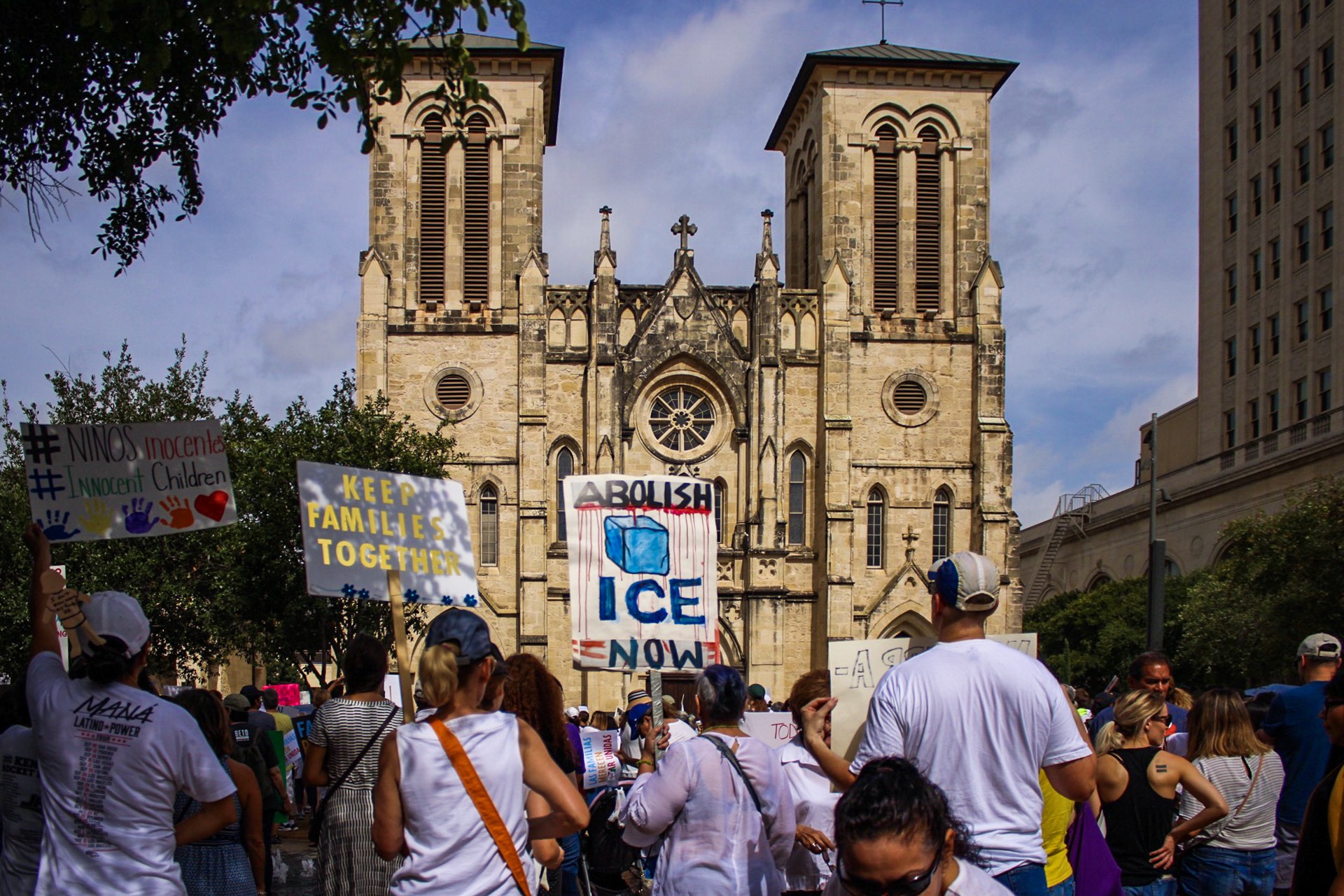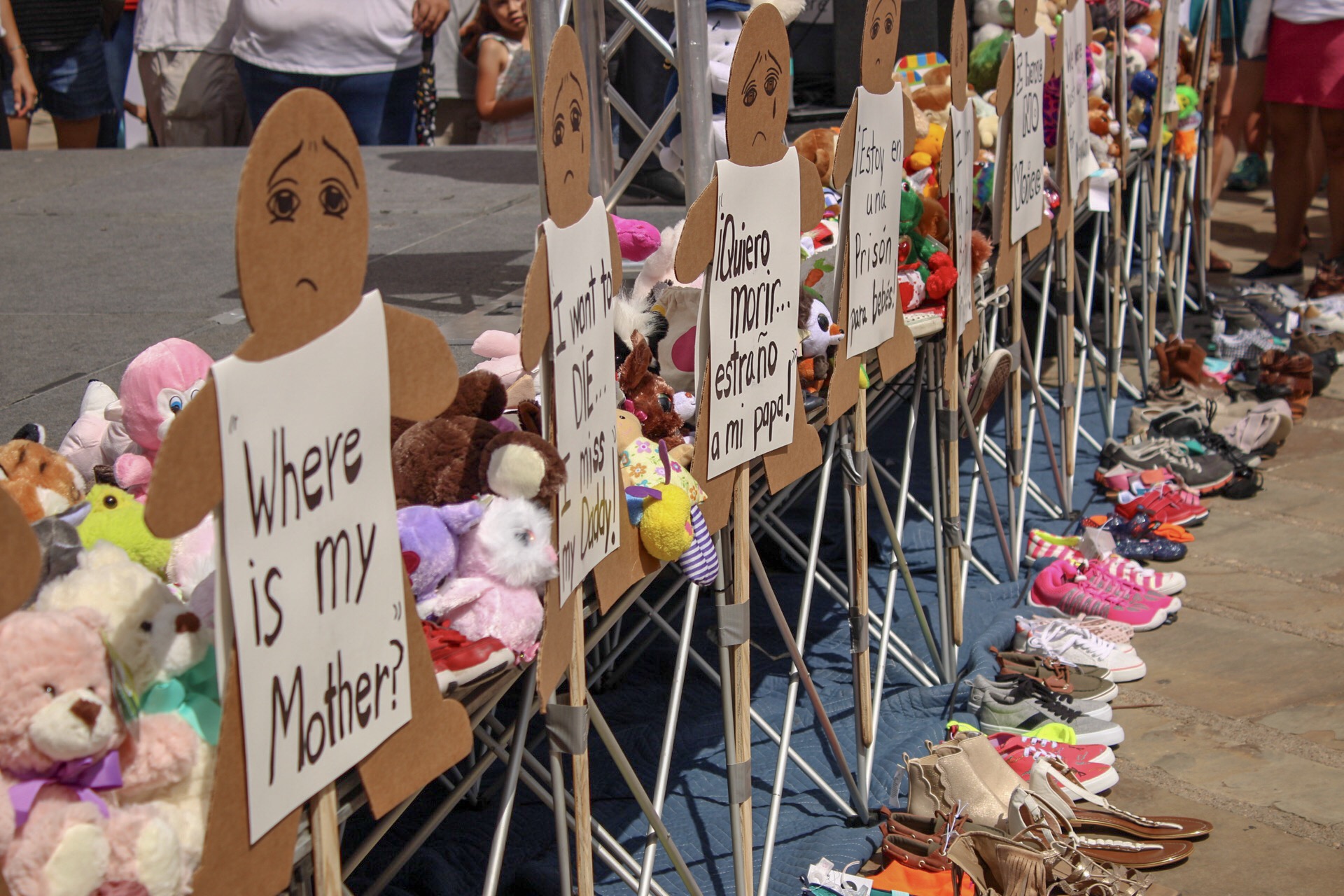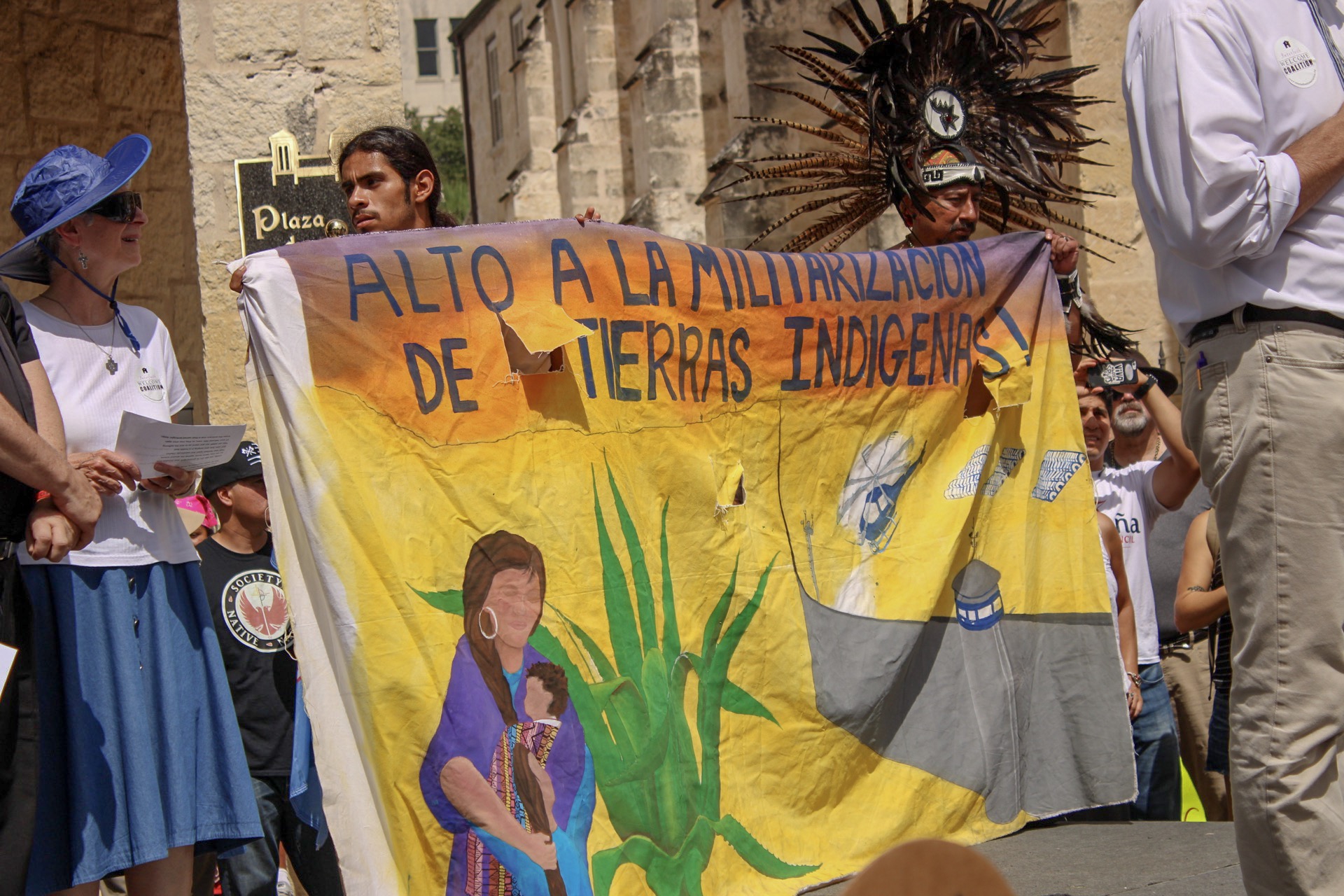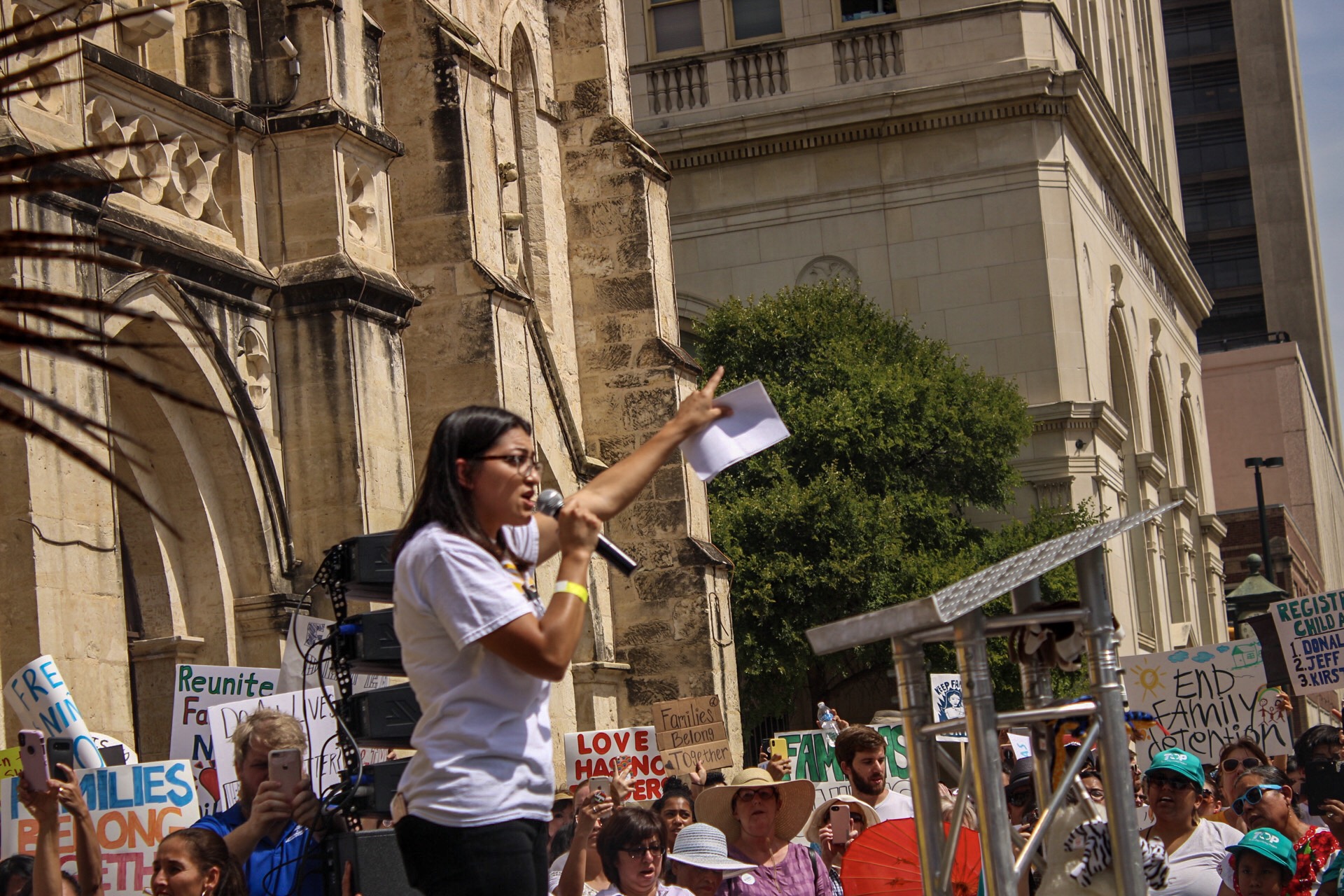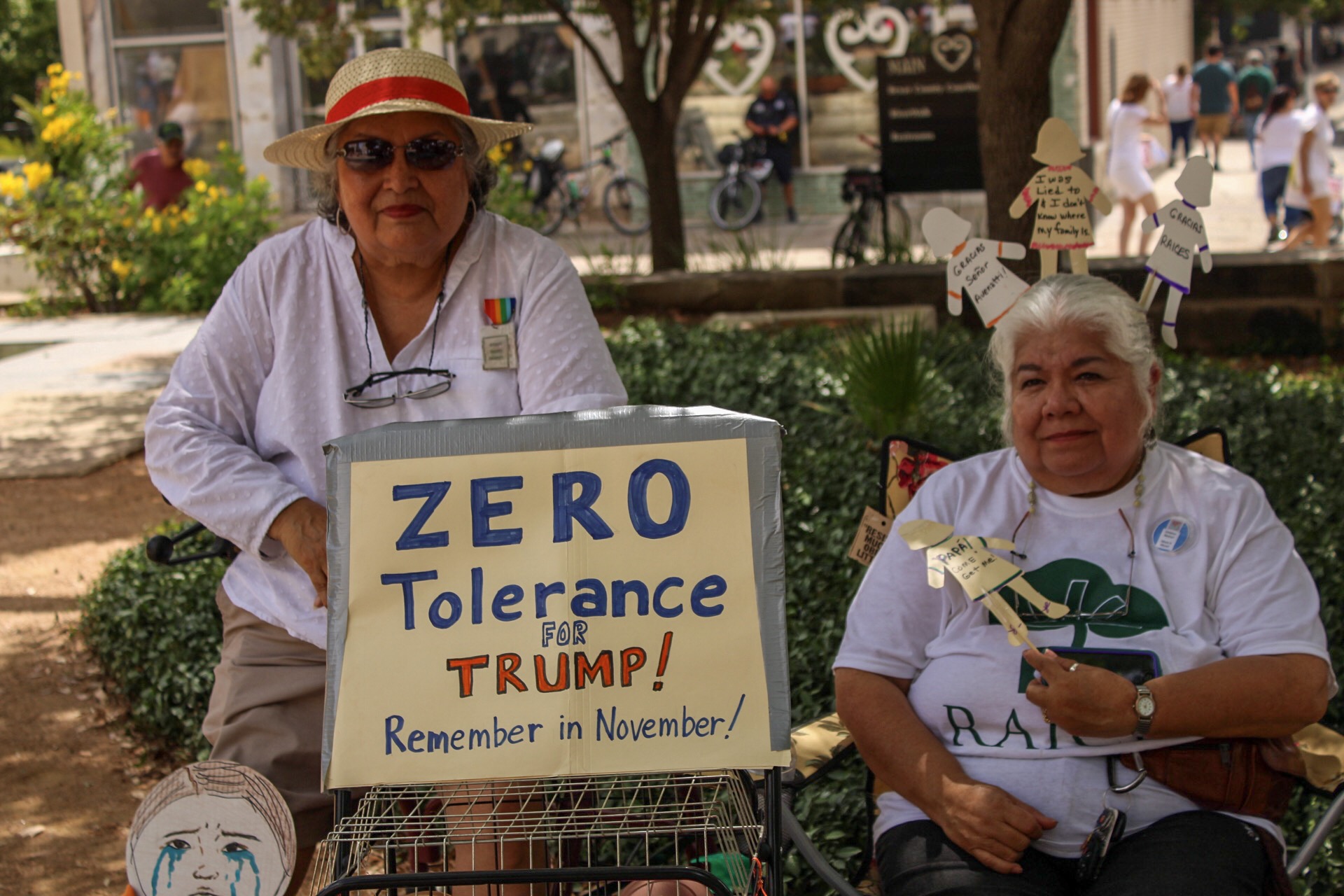Editorial: Activism in San Antonio Showed How We Can Do Better
Growing up in San Antonio and attending a poor title I high school has, to this day, continuously impacted how I go about life. San Antonio has a 63.2 percent Latinx population with almost 60 percent of that population being Mexican. It was around my senior year of high school when I started to recognize and give names to the injustices my community was facing simply because we were poor and brown. At 18, I left San Antonio for Denton to attend UNT with my newfound desire for social justice.
Denton has a larger white population which was something I needed to get adjusted to, but, nonetheless, I found a home in this liberal college town inside a red county. Denton activism was my first real taste of any type of activism. At first, I was excited about these opportunities to protest and organize but eventually grew restless with the way these events took course. Of course, there is a lot to be said about the demographic makeup in Denton compared to San Antonio, but I noticed this pattern in protests that took hold throughout the country. Every piece of information I was receiving about these protests felt performative and politicized. Yes, all these topics are inherently political, but the injustices happening were being seen as two-party system platform points as opposed to human rights which were being violated.
When I went home to San Antonio this last weekend of June 30, I was a little upset about it because it meant I was missing the Families Belong Together Rally in Denton and PRIDENTON. But, I also realized it was a real opportunity to experience my hometown’s activism for the first time. I had been slowly already tuning into San Antonio’s politics and activism and was already somewhat excited about seeing more POC present by default. What me and my friends from Denton saw made me think about how I wished a lot of activism in Denton mimicked what was presented to us in San Antonio.
The POC speakers outweighed the white speakers, and the speeches they shared were from experience, something which touches or touched them firsthand. Not to say if you are white you can’t care about these issues, but so much gets lost when a white person speaks from overheard knowledge because of the distance their white body has provided them. They can step into this issue for a brief moment and sympathize, but the kicker is and always will be, that they get to leave. The nuances, the emotion, and the downright understanding of the issue then becomes blurred.
San Antonio isn’t perfect, and neither was this rally. There were signs saying “We are better than this” when centuries of oppression to black and brown lives could very clearly tell you we aren’t and we never have been. There was perpetuation of this idea to “vote” when the next election is months away and has no immediate impact. It is in no way helpful to the people being pulled apart at this very moment. Yelling at people to vote when some of the Democratic candidates are not fully on board with radical liberation is why we lose and yelling at black and brown people to vote and calling them lazy for not doing so is anti-progressive and hypocritical, too. Yes, voter apathy is a problem, but it is not always privilege that prevents people from voting but instead a lack of. Not all people can care about politics mostly because their lives have been politicized into oblivion and voting is honestly the last thing on their minds. Provide some real candidates for us to get energized about and then we can talk.
Apart from my sidebar, like I said San Antonio is not perfect. I know, I lived there my whole life. I know Mexican hegemony is strong and harmfully present; I know there should have been more Central American speakers and organizers than Mexican speakers and organizers; I know my community can be problematic - I know this. But still, within these issues, the activists present were closer to the topics than most I’ve ever seen. I’m all about ‘get it right and radical the first time or don’t do it all.’ So yes, the San Antonio rally was not perfect, but brown people talking about brown issues, happily exclaiming to abolish ICE? It felt like one of the closer things to perfection and was at the least invigorating.
The speakers were able to intersect connecting topics to the issues happening at the border which is something I have always wanted to see. Every rally or march I had been to previously had a hard time contributing and correlating other issues because they couldn’t offer more energy to multitask in areas which don’t impact them. For example, the Black Lives Matter has been protesting against gun violence for years, yet we see things like March for Our Lives where the primary focus is on guns in schools killing suburban children and has little to no speakers talk about gun violence against black lives specifically from the police when they are interconnected issues.
At this rally, we saw people recognizing that Mexicans are not the only or even primary community affected by violent policies on immigration and deportation. There was recognition of Central American bodies who have experienced the worst of it, being deported at ridiculous levels in the U.S. AND Mexico. There was incorporation of the countless indigenous lives within El Salvador, Honduras, and Guatemala - lives the border crisis majorly impacts as they seek asylum, lives that aren’t receiving adequate support because there are not enough translators for their indigenous languages. The organizers even brought an indigenous group from Oklahoma present in solidarity and supported those who shared their thoughts and indigenous dance with the crowd. (Oklahoma is two hours away from Denton and SEVEN from San Antonio, just saying). There was also mention of the fight for LGBTQ rights on the weekend of San Antonio’s Pride Celebration. There was responsibility taken for Roxsana Hernandez, a transwoman from Honduras who was seeking asylum but ultimately died in ICE custody because she did not receive proper medical care. We did that to her and the speakers took responsibility for it. There were also teacher coalitions present who spoke about their first, second, and third generation students who have to attend school in fear every day and what they were doing to help the issue and how those present could help.
This rally resonated loudly and had real, tangible, and meaningful calls to action because everything was spoken from an immediate experience because their black and brown bodies felt it closer than any white person could.
I recognize Denton itself has made recognizable strides. The sizes of the marches and rallies have increased and have reached a more diverse crowd. PRIDENTON this year was unapologetic about making the theme of the celebration focused on queer people of color and organized the speakers and events firmly onto this. There are parts worth commending, but essentially we can all do better. Educate yourself on these issues through and through. I am still learning and I learn more everyday by listening to podcasts, reading pieces, and just following people on twitter. Learn the necessary terms, don’t leave a single stone unturned on your educational journey, and then, give up your space for more people of color who are actively being attacked by these issues. Meaning, let’s get some Central American women organizing this shit. Please for the love of god.
Places to Donate -
RAICES:
Non-profit working to provide low-cost legal services and attorneys to “under-served immigrant children, families and refugees in Central and South Texas."
Pueblo Sin Fronteras:
A group which organizes caravans periodically to move the most vulnerable asylum-seekers into the U.S. (Roxsana Hernandez came with Pueblo Sin Fronteras).
Texas Civil Rights Project:
The organization is helping families receive legal advice and translation services.
GoFundMe:
Donate to individual stories to help families reunite.
Also, here’s a whole list of places to donate to from the Texas Tribune:
Photos and header design by Tori Falcon.

